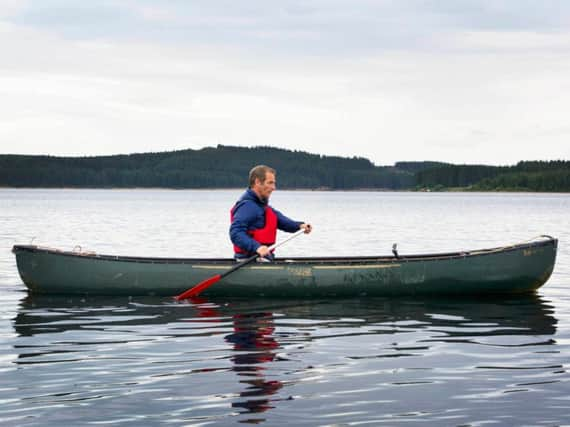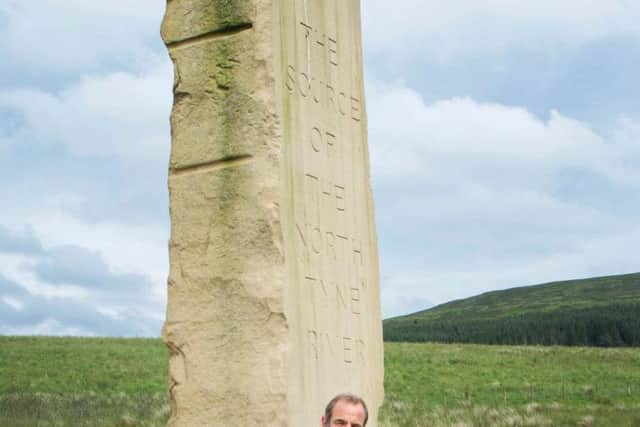RECAP: Further Tales from Northumberland - Episode Six


The TV presenter was pooped on by the chick as he learnt about ringing and weighing the birds at Kielder.
"Ahh classic!" said Robson, after the creature shot poo down his cream-coloured trousers, before adding: "Well that's what it thinks of my presenting. You know, they have been ringing ospreys at Kielder since 2009 and that has never happened before!"


Advertisement
Hide AdAdvertisement
Hide AdRobson took it in good heart and clearly enjoyed learning about these birds – which returned to Kielder less than a decade ago, after a lengthy absence.
He said: "Ospreys used to be a common sight in Northumberland, but their fish-catching prowess made them unpopular with Victorian estate owners. Preyed upon by egg collectors, the osprey was declared extinct in this country in 1840, but with changes in the law, the 1950s saw the osprey reintroduced to the Scottish Highlands and over the past decade, they found their way to England too and there are now several hundred breeding pairs across the country. They are in safe hands here at Kielder."
The osprey wasn't the only creature that Robson learnt about during his time at Kielder in tonight's episode, which was screened from 8pm to 8.30pm.
The Hexham-born star visited Kielder Salmon Centre, which is the largest conservation hatchery in England and Wales, where the Environment Agency grows fish to stock rivers and lakes in the region. Up to 900,000 salmon are successfully bred here each year. Robson helped to release some young salmon into the wild and added: "Salmon make you smile when they leap."


Advertisement
Hide AdAdvertisement
Hide AdRobson loved his time at Kielder, describing it as 'the most remote spot in the whole of England'. He canoed across Kielder Water, which is the largest man-made lake in northern Europe and is capable of holding 200billion litres of water.
The beauty of the area was not lost of him. As he rowed across the reservoir, which stretches as far as the eye can see and is lined with trees in the distance, he said: "Looking at the scenery, you could be forgiven for thinking that I was on one of North America’s great lakes and not a remote spot here in Northumberland. This reservoir is vast."
Robson’s Kielder experience was part of his exploration of the River Tyne in this evening's episode.
He headed to Cherryburn, which is on the banks of the Tyne and the former home of one of Britain’s greatest wildlife illustrators, Thomas Bewick.
Advertisement
Hide AdAdvertisement
Hide AdPaying tribute to this renowned engraver and natural-history author, Robson said: "The River Tyne provided him with inspiration. His wood engravings capture scenes of everyday rural life which transformed our understanding of the natural world. Bewick’s wood-cut prints are minute – some are just two or three inches wide. It is hard to fathom out how he worked on such a small scale, but somehow, their size makes them all the more special."
He then gave it a go, engraving in the style of Thomas Bewick on boxwood. Robson said: "Last time I did anything like this, I was nine years old, in my little primary school. I didn’t use boxwood, I used a potato!"
Finally, Robson joined the Tyne Rowing Club and learnt the story of the great North-East rower, Harry Clasper.
Reflecting on his journey, Robson said: "The mighty River Tyne has inspired songwriters, poets and artists, it has created sporting heroes and helped drive the industrial revolution. It has left its indelible mark on British history."